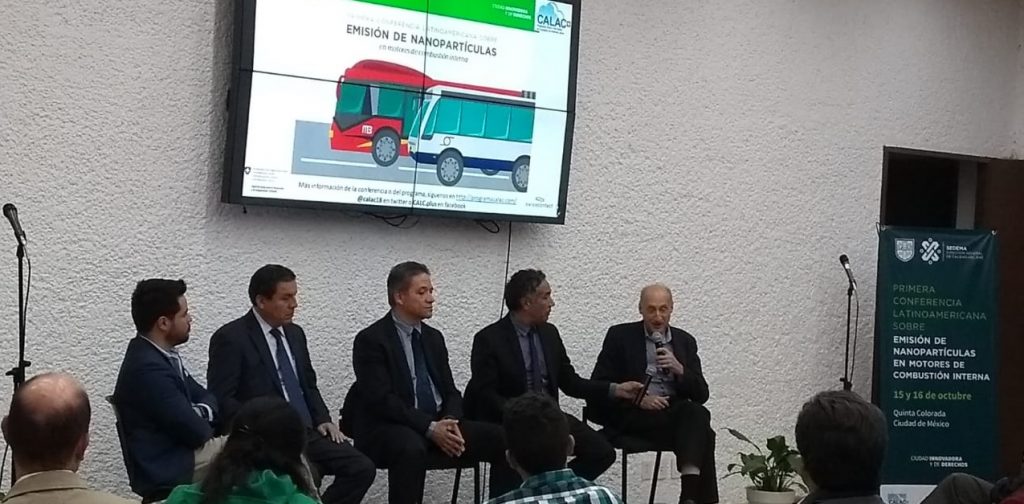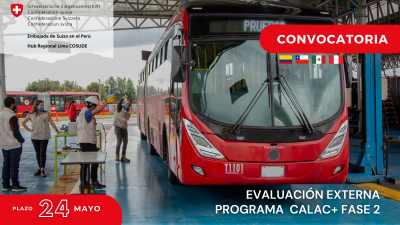The event was an opportunity to provide expertise to decision-makers to inspire and secure government commitment to forward-looking investments in the city transport sector in close coordination with private stakeholders.
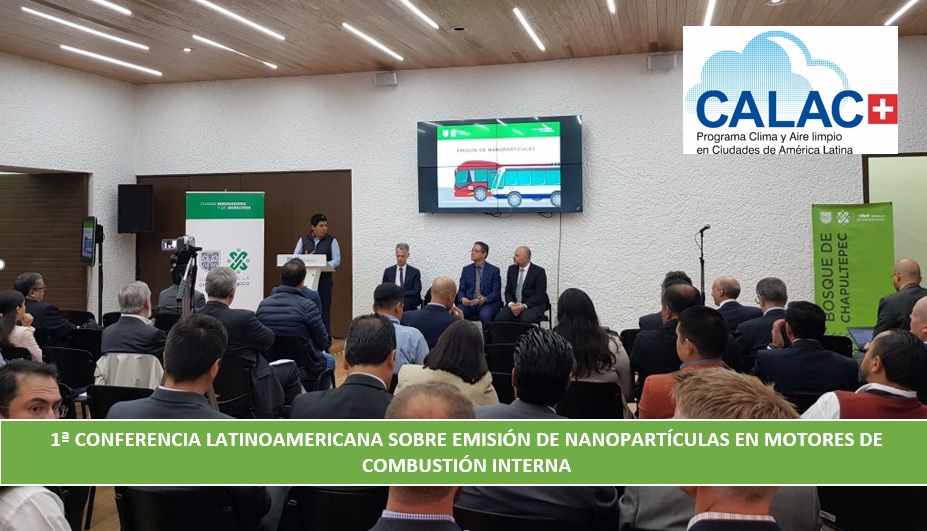
The 1st Latin American Conference on the emission of nanoparticles in internal combustion engines was held 15 to 17 October, as part of the Climate and Clean Air Programme in Latin American Cities (CALAC+). The Mexico City government Environment Secretariat (SEDEMA) and Swisscontact were in charge of organizing the conference, which was supported by Swiss Cooperation (SDC).
The aim of the Conference was to broaden knowledge about pollution and the impacts on human health caused by these emissions, and to share experience from Europe, North America and Latin America with the technologies used for the control and reduction of nanoparticle emissions, the standards for controlling them and to show the progress made in Santiago, Lima, Mexico City and Bogota.

The conference was opened by Sergio Zirath Hernández Villaseñor, Director General of Air Quality at SEDEMA; Daniel López Vicuña, Director of Air Quality at SEMARNAT; Martin Jaggi, SDC Head of Global Cooperation in the Andes; and Léo Trembley, Deputy Head of Mission at the Swiss Embassy in Mexico.
In their presentations, the speakers stressed the importance of this conference as one of the measures taken in Mexico City to improve air quality in the Metropolitan Area of the Mexico Valley (MAVM). These measures are geared to raising awareness among the public, industry and local government, and to reducing concentrations of particulate pollutants that exceed standards for the protection of the health of the population.

Martin Jaggi stressed the importance of “strengthening the capacities of officials, to work for more sustainable cities and better air quality. That is why SDC is supporting this work through its CALAC+ Project, addressing specific issues such as the shift to off-road, soot-free and low carbon-emission urban buses and machinery. He mentioned that Switzerland has devoted its lengthy experience to finding innovative solutions for improving air quality, and is now providing this in four major capitals of Latin America: Santiago, Lima, Bogota and Mexico City.
The first two days of the conference offered a series of exhibitions, and discussions among experts, researchers, the private sector and decision-makers. This highlighted the need for further discussions to help produce healthier cities.

Some of the conference highlights were the presentations made by Andreas Mayer from the VERT Association from Switzerland; Luisa Molina from the Molina Centre; Alberto Ayala from West Virginia University and Sacramento Metro AIR QUALITY MANAGEMENT DISTRICT (USA); Gerrit Kadijk from TNO from Holland and other experts from Europe, North America and Latin America, who provided scientific evidence of the damage of nanoparticles to the health of the population. The conference was an opportunity to present the technological advances that limit the emission of ultrafine particulate matter and nanoparticles in internal combustion engines.
The delegations from Chile, Colombia, Mexico and Peru demonstrated that the Latin American region is on the way to adopting the Euro VI/6 vehicle emission standard, and that these policies have a great impact on air quality in cities. The discussions during the event stressed that inspection to ensure that vehicle abatement technologies work well is of vital importance if the policies are to have the desired impact.
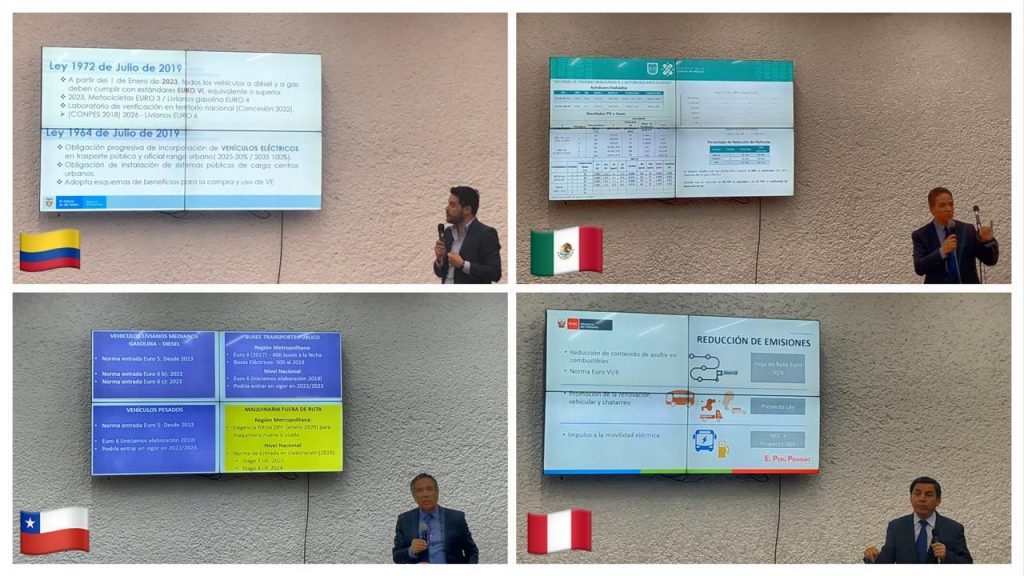
Vehicle Verification Centre
On the third day of the event, participants made a field visit to a Vehicle Verification Centre (Verificentro) to watch the city’s light vehicle engines’ particle count level being measured.
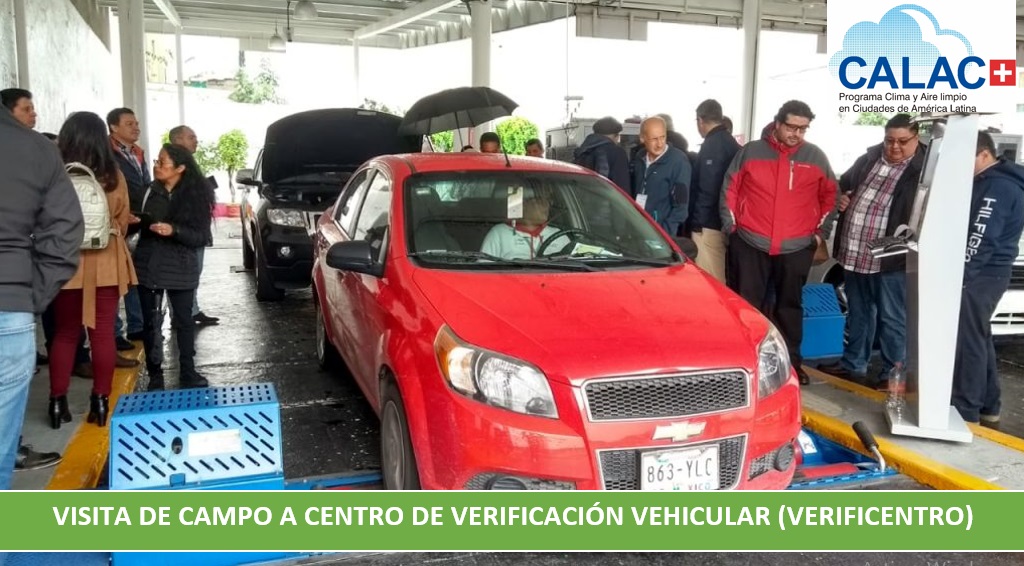

Workshop CALAC+
To close, the four CALAC+ countries’ authorities held a meeting to coordinate their contribution in the countries, with specific actions which could be a starting-point for defining standards and plans to address the challenges posed by nanoparticle emissions. The meeting resulted in a decision to create a Technical Working Committee composed of experts from the four countries and some international guests, which will draft the technical base for formulating protocols for measuring and calibrating measurement equipment, and for proposing emission limits.
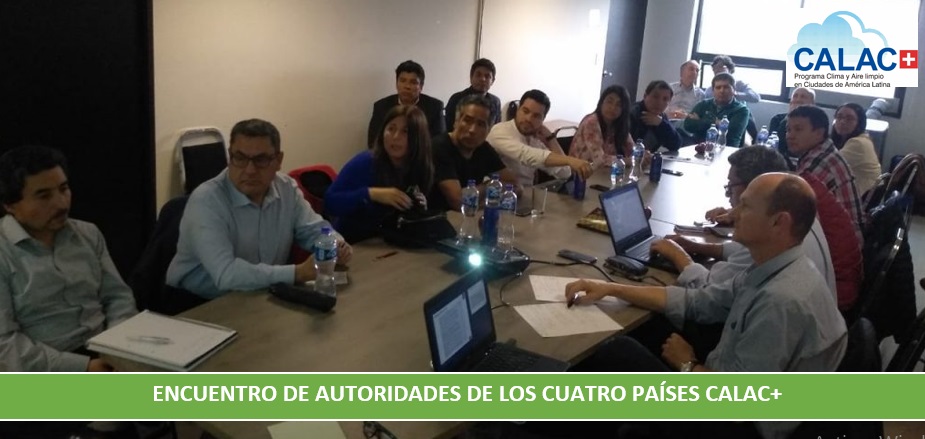
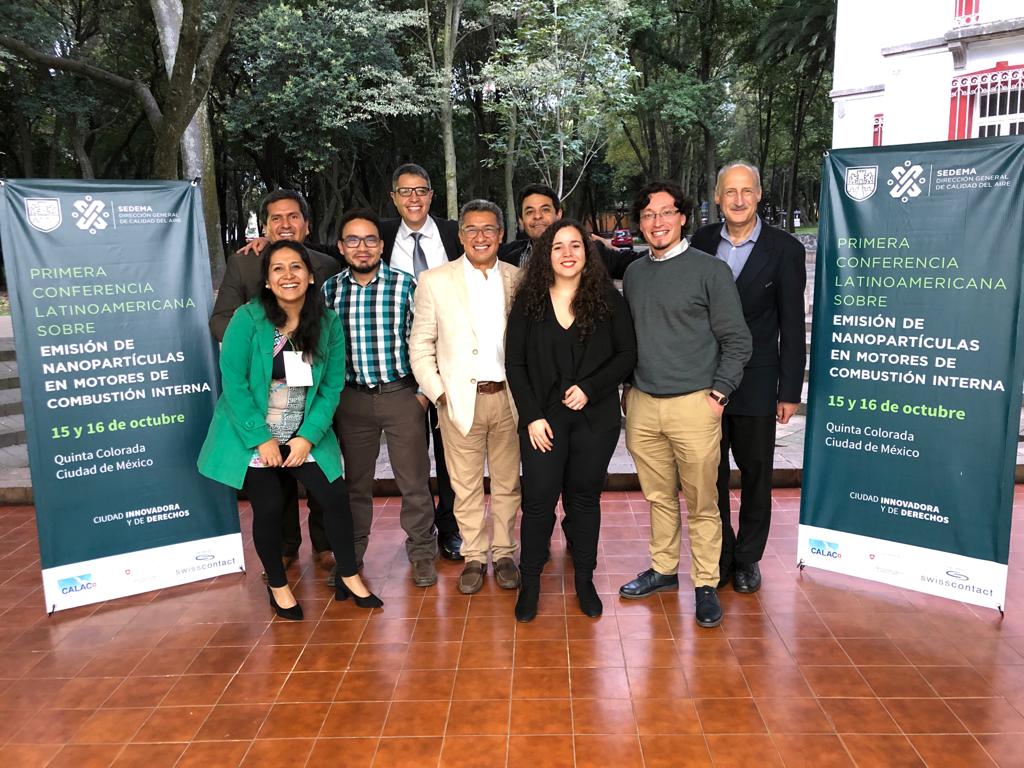
Here Event pictures.
The conference presentations can be seen in this link.
The Climate and Clean Air Programme in Latin American Cities (CALAC+) is a Swiss Cooperation (SDC) initiative implemented by Swisscontact that aims to promote efficient and speedy reduction of air pollutants harmful to human health, and mitigating climate change by using diesel engine particulate filters (DPF).
For further information:
Calac+, Project file, Swiss Embassy, Swiss Agency for Development and Cooperation (SDC)

